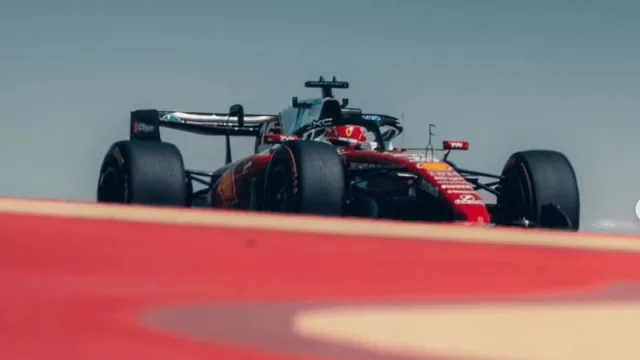Important:
This article is also available in Portuguese in the section "Miami em Português"
Who is McLaren's New Owner?
The new owner is CYVN Holdings, a sovereign fund from Abu Dhabi.
Summary and Tips
The agreement between McLaren and CYVN Holdings promises to steer the brand towards a future focused on sustainability and high technology. While Mumtalakat retains control over the motorsport division, CYVN will concentrate on expanding the production of high-performance vehicles. "McLaren stands on the brink of a significant transformation." This change in ownership not only presents an opportunity to revitalize the brand but also poses a challenge: adapting to an automotive world that demands sustainability and innovation. The fusion of McLaren's rich heritage with CYVN's futuristic vision could be the key to unlocking unprecedented potential in the automotive sector.
Key Tips:
Leverage History: The integration of McLaren's rich heritage with CYVN's technological expertise can redefine the future of motorsport.
Maintain Sustainability: The transition to electric vehicles is crucial for the brand’s future.
Innovate and Diversify: Entering the SUV segment may open new revenue streams and avenues for expansion.
The Ownership Change: A Strategic Move
"CYVN Holdings has agreed to purchase McLaren's automotive division." This move not only injects the necessary capital to revitalize the brand but also strengthens its capacity for innovation. "Both parties have been in discussions since October, exploring a potential partnership," indicating a shared vision for McLaren's future in the competitive supercar landscape.
Financial Challenges and New Directions
"McLaren has not had an easy path in recent years." In a short period, the company's losses surged from £349 million (approximately $435 million) to a record £924 million (around $1.15 billion). This scenario prompted Mumtalakat, which has supported McLaren with capital injections since 2007, to seek alternatives with CYVN Holdings. "During the pandemic, McLaren's finances took a considerable hit," leading the company to sell and lease its headquarters in Woking. Despite raising £1 billion (about $1.25 billion) in 2021, the financial burden continued to grow, culminating in Mumtalakat's acquisition of the Saudi stake in 2022.
-
IG: @infonegociosmiami
Innovation on the Horizon
"McLaren is gearing up for its biggest challenge to date: building its first fully electric supercar." This ambitious goal arises amidst rising costs and supply chain issues. Currently, the hybrid Artura and the GT, McLaren's first grand tourer, are its flagship models, but "they will not be sufficient to secure the company’s future." CYVN’s President, Jassem Mohammed Bu Ataba Al Zaabi, stated that the agreement presents an opportunity to “combine McLaren's rich history with CYVN's technological expertise to set a new standard of excellence.” This statement resonates with McLaren’s need to remain at the forefront of automotive innovation.
The Future of McLaren: SUVs and Beyond
"Massive investment expectations" best describe McLaren's immediate future under new leadership. With projects on the table, including an SUV they prefer to call a "shared performance vehicle" and an electric supercar, the company requires robust financial backing to execute these initiatives. "CYVN also acquired a non-controlling stake in McLaren's motorsport division," suggesting that the new ownership will influence how the racing team is managed, even as Mumtalakat retains principal control.
Subscribe at no cost to INFONEGOCIOS.MIAMI to receive the most strategic, agile, and valuable insights at: Subscribe Here
Infonegocios NETWORK: 4.5 million Anglo-Latinos united by a passion for business.
Contact Infonegocios MIAMI: [email protected] or [email protected]












Tu opinión enriquece este artículo: